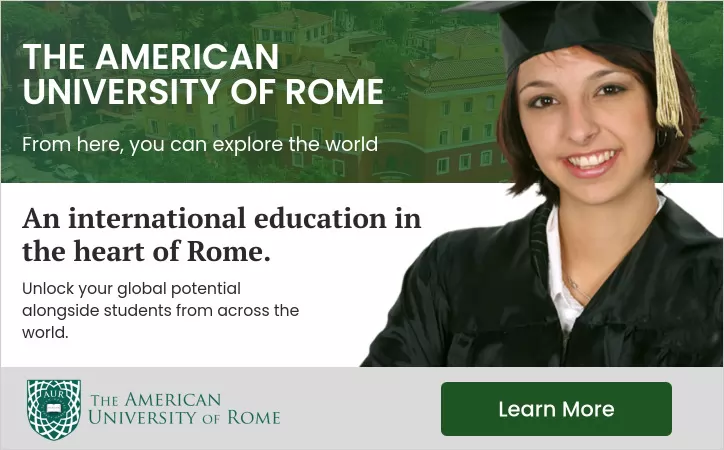Immigrants vote for a voice in Rome
On 10 December immigrants in Rome will go to the polls for the second time to elect their representatives to the city government. In total 155,547 people are eligible to vote in the elections (see box), which will see 41 candidates contesting four posts on the city council corresponding to four geographical areas Africa, Europe, Asia and Oceania and the Americas and a further 113 a single post on each of Romes 19 municipi. Should all four candidates elected to the city council be of the same sex, then the candidate of the opposite sex with the highest number of votes also gets a place according to new rules concerning equal opportunities. This would take the total to five.
The elected representatives, known as consiglieri aggiunti or adjunct councillors, do not have the right to vote during council sessions but they can give their opinion, make recommendations, present motions and resolutions and sit on special commissions. Unlike the outgoing councillors, who took office following elections in March 2004, they will remain in their post until the next city elections in 2011.
The poll will also serve to determine the configuration of the consulta cittadina, a consultative body that provides a link between the immigrant communities in Rome and the city administration. Its members are picked from the unsuccessful candidates for the city council positions according to the number of votes polled, to a maximum of 30 members. Of these, seven represent Europe, seven the Americas, eight Asia and Oceania and eight Africa.
Of the four outgoing consiglieri aggiunti, Santos Taboada Zapata (from Peru representing the Americas), Aziz Darif (from Morocco representing Africa), Ionut Gabriel Rusu (from Romania representing European countries outside the European Union) and Irma Tobias Perez (from the Philippines representing Asia and Oceania), all but Rusu are standing for re-election. The only reason why Rusu is not, according to group leader Taboada Zapata, is because Romania is due to enter the European Union on 1 January 2007, making him ineligible for the post.
Taboada Zapata, who is an electronics expert, explains the decision to run for a second term in office partly in terms of the hard work put in so far: It has not been easy for us to establish ourselves in the role and in two years we have not achieved a huge amount, he says. But now that we have experience I think we are in a position to find solutions to citizens problems.
Difficulties have been largely material: according to Taboada Zapata, the immigrant councillors have received little support from the city council in terms of what he calls infrastructure equipment, secretaries and the like while they had to wait eight months before they even saw their gross 50 per session attendance fee. Further, he says the fact that the Italian city councillors and the adjunct councillors work out of different offices the former in Via delle Vergini 18 near the Trevi fountain and the latter in Via Barberini 95 has led to ghettoisation.
However, despite the problems Taboada Zapata says the group has started to make its voice heard. He reels off a list of some of the activities and achievements to date. These include presenting a project together with Pino Galeota of Rifondazione Comunista for the so-called Casa del Ballo a multipurpose centre in one of Romes outlying suburbs for the many dance groups linked to the foreign communities in Rome and their Italian equivalents with the aim of promoting integration and cultural exchange. The adjunct councillors are also pushing for the provision of indoor meeting places for immigrants who currently gather in squares and other open spaces across the city in their free time on Thursday afternoons and Sundays, although they are still waiting for an answer on this matter.
The length of time it takes to renew a permit of stay anything up to a year according to Taboada Zapata has been another matter of concern for the immigrant councillors. To speed things up the group asked last year if renewals could be handled by the relevant municipio, as is the case for identity documents, rather than by the central police authorities, whose offices for foreigners are far out in Tor Cervara in northeast Rome. However, Taboada Zapata points out that changes are dependent on the ministry of the interior and in the end nothing was done.
His concern is echoed by S.M. Saiful Islam from Bangladesh, the immigrant councillor to the IX municipio, which covers parts of the Prenestino Labicano, Appio Latino and Tuscolano areas, who describes the situation as a disgrace. However, the president of the Bangladesh cultural association and owner and manager of a bead shop near Piazza Vittorio also has doubts about a new provision for renewals requiring immigrants to make their application at the post office rather than at the questura. It is just another slow procedure, says Islam shaking his head. Introduced in five Italian provinces (Prato, Ancona, Frosinone, Brindisi and Varbano-Cusio-Ossola) on an experimental basis at the start of November, the new rules will eventually be extended throughout the country.
The fact that the immigrant councillors do not have voting rights is clearly something they would all like to see changed. Pending the necessary change to national legislation, Taboada Zapata says they get round the problem by lobbying councillors before voting and usually they are open to what we have to say. Islam adds: Before we could not even attend council sessions to ask questions and explain our point of view. Now we can. This is a first step; having the right to vote will be the next.
Islam has presented numerous proposals to the municipio council since he was elected in 2004 with 193 votes out of 1,111 cast. These include a project for multicultural exchange between Italian and immigrant children, language tuition for children in Spanish, Romanian, Chinese, Bengali and Arabic (the five most widely spoken languages in the IX municipio), and the provision of a cultural centre and sports facilities for immigrants in the area.
Like Taboada Zapata, Darif and Perez, he is also hoping to be re-elected on 10 December. He collected 72 signatures to support his candidature (42 more than the minimum number required) more than anyone else, he says proudly and he clearly thinks he has a good chance.
Candidates for election have to cover their own campaign expenses and for this reason Taboada Zapata explains that some aspiring councillors have aligned themselves with political parties in order to tap support. However, he says that he has no such affiliation: My party is the people and associations who support me, he insists.
Should they be re-elected Taboada Zapata says he and his colleagues will continue to pursue the questions that have already been raised. They will also work to promote Italian language studies among immigrants as well as pushing for a change to citizenship legislation and for non-EU immigrants to have full voting rights in city elections. Indeed, it is only when they have this right that their voice will be truly heard.
Who can vote? All non-EU citizens aged 18 and over who are legally resident in Rome, or who are resident outside the capital but live and work or study in Rome. Unlike in 2004, when immigrants had to register to vote, this time residents in Rome have been registered automatically. Instead non-residents have had to register to vote. Both residents and non-residents should have already received their voting papers through the post. Those who have not received their papers can collect them from their municipio from 09.00-19.00 until 9 Dec and on 10 Dec from 08.00-22.00. If you have lost your papers you can request replacements from the main electoral office in Via dei Cerchi 6 or from the relevant municipio (times as above).
When and where to vote? Voting takes place on 10 Dec from 08.00-22.00 at the polling station in your area indicated on the voting papers.
For information tel. 060606 or contact the electoral office in Via dei Cerchi 6, tel. 0667102888, www.comune.roma.it.


















